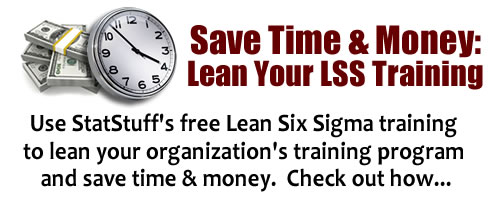Beta Risk
| Term | Definition |
|---|---|
| Beta Risk | A formal measurement of the risk of a false negative defined for statistical tests typically during hypothesis testing. Beta risks (a.k.a., Type II Errors or false negatives) generally represent the amount of risk or error in yielding a false negative that you're willing to allow for any statistical test you run. In normal situations, 10% is a common amount of risk statisticians allow for false negative errors in their analyzed data. This means they're willing to accept that there's a 10% chance their data will yield a false negative result. In high-risk situations (e.g., building weapons, healthcare, etc.) where precision and accuracy in the results are critical, a lower amount of risk is probably preferred; in those cases, it's not uncommon for statisticians to set a beta risk level at 2% or lower. This type of risk is also subtracted from 1.0 in order to calculate your power level. Most formal statistical tests don't require a beta risk or power level as part of the equation; most often they require an alpha risk or confidence level be identified in the equation. A judicial example of beta risk would state this is the risk of acquitting a guilty person. A statistical example would state this is the risk of saying a factor doesn't cause a difference when it really does. A practical example would state this is the risk of diverting our attention away from the real root cause. |


